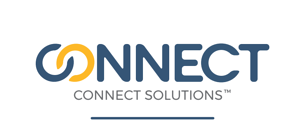“Education is a highly social activity. Humans learn by modelling the behaviour and internalising the experiences of others. When people learn in social settings they retain information better.”
– Reid Hoffman, co-founder and executive chairman of LinkedIn
Companies spend billions of dollars on corporate training every year, and for good reason. Having more, skilled, knowledgeable employees typically means building a more productive business.
Not surprisingly, the highest performing companies tend to invest more in learning and development, and many organizations cite training as one of their biggest budget items. Clearly formal training is a critical part of employee development… but it shouldn’t be the only part.
Informal knowledge sharing can and should be an everyday activity.
Consider the potential benefits of information sharing at your company:
- Cost-effective ongoing learning experience
- Ideal solution for employees who don’t absorb information well in a classroom setting
- Encourages employees to be leaders and teachers instead of knowledge hoarders
- Improves individual and team effectiveness
- Contributes to nurturing a culture of learning, sharing and collaboration above competition
- Enables employees to constantly improve their capabilities
Chances are you can think of even more benefits. But how can you increase information sharing at your company?
There’s No ‘I’ In Team
If you’ve done a good job of hiring, every employee should have the ability to make a positive impact on company goals, but the impact of a dozen individuals working in silos will pale in comparison to a dozen individuals working together.
Create a culture of collaboration by measuring success by the output of the team rather than the output of the individual.
Of course, changing your culture may be no easy feat, but it’s well worth the effort.
Tip: Try using Qnnect’s Appreciate feature to encourage employees to share recognition for contributions to shared team goals or extra effort to help a teammate.
Peer-to-Peer Learning
Education doesn’t have to come from the top down. Any employee has the potential to share valuable information, but for that to happen the process has to be easy and seamless.
For companies with a distributed workforce, a mobile solution can enable workers to share information beyond physical boundaries, amplifying the impact of the knowledge of any given employee.
Get Social
Sharing data and company protocols is one thing, but sharing new ideas, relevant articles or the occasional personal story is another. A newsfeed is a great place for employees to share content that they find useful or interesting in relation to their work.
Informal information sharing can help to build a sense of social connectedness, particularly for companies with remote workers.
By introducing a mobile social platform with a newsfeed, companies empower employees to share valuable information, without worrying about clogging their colleagues’ inboxes or leaving non-email users out of the loop altogether.
Have you tried sharing information at your company? Share your challenges or let us know what worked in the comments.


